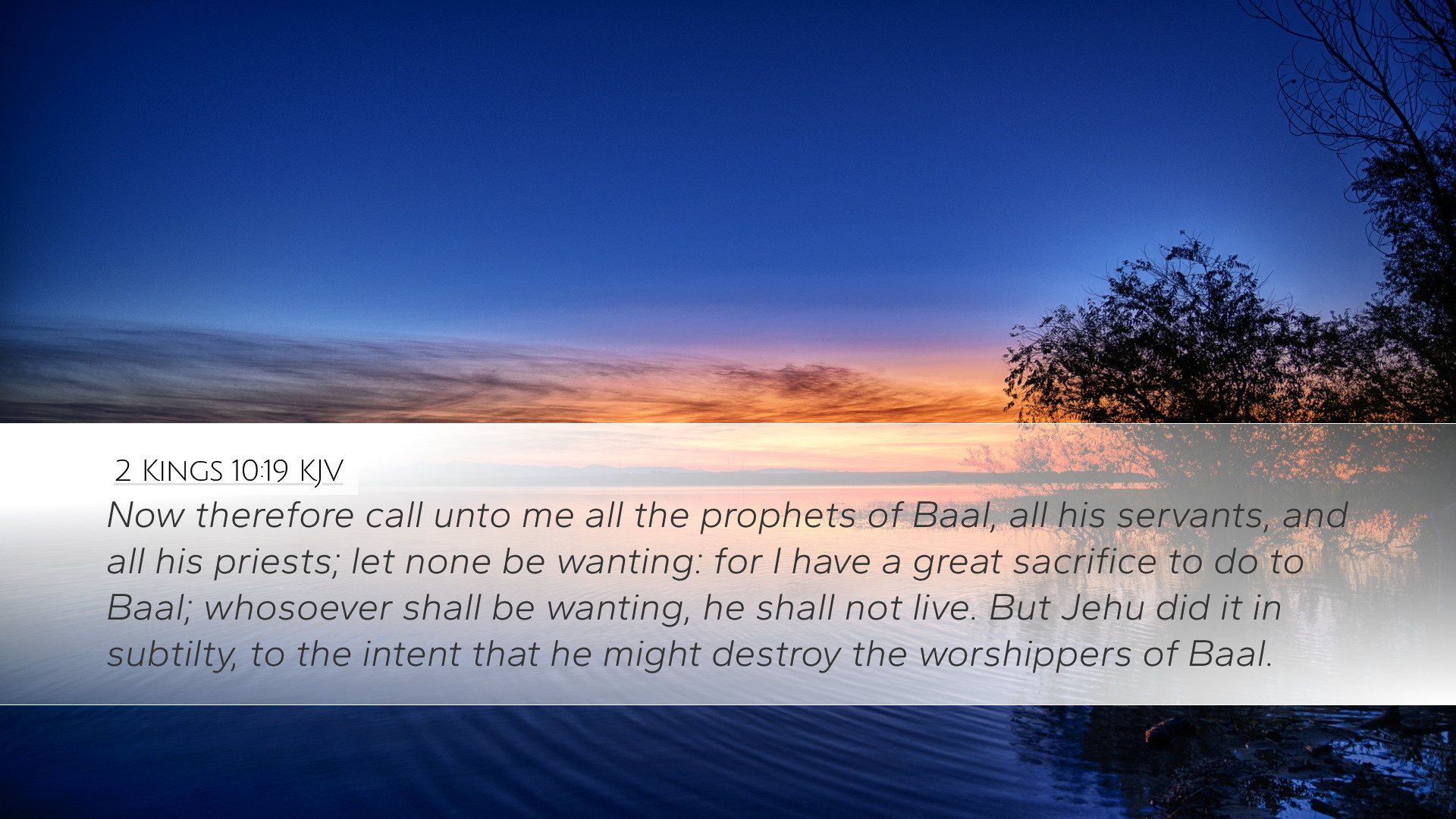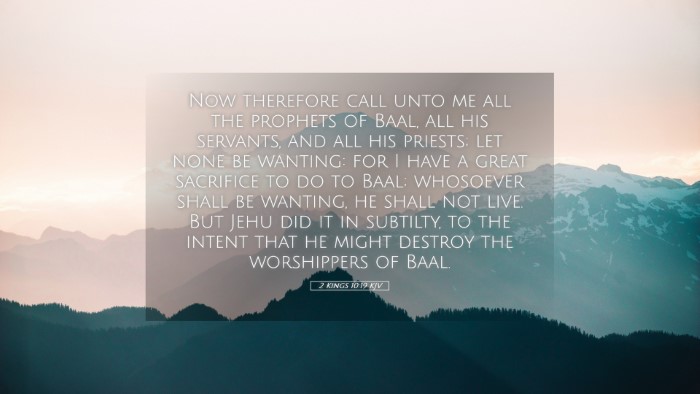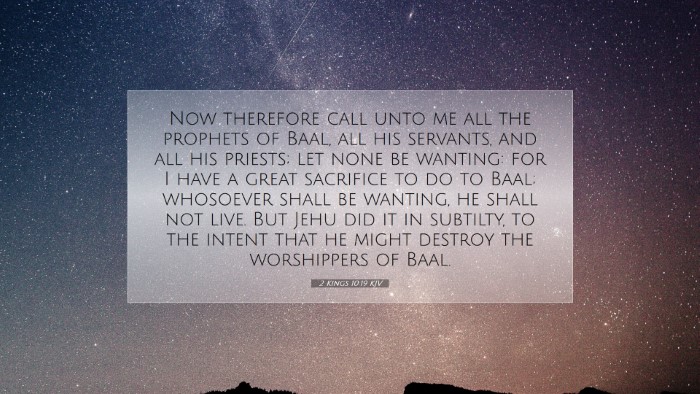Commentary on 2 Kings 10:19
Bible Verse: "Now therefore call unto me all the prophets of Baal, all his servants, and all his priests; let none be wanting: for I have a great sacrifice to do to Baal; whosoever shall be wanting, he shall not live. But Jehu did it in subtilty, to the end that he might destroy the worshippers of Baal."
Introduction
2 Kings 10:19 is a pivotal verse that captures the essence of the conflict between faith in Yahweh and the idolatrous worship of Baal during the reign of Jehu. This commentary integrates insights from various public domain sources to provide a comprehensive exploration of the themes, historical context, and theological implications found in this verse.
Historical Context
During Jehu's reign, Israel was rife with corruption and idolatry, primarily centered around the worship of Baal. This was a direct result of the previous influences of Ahab and Jezebel. Jehu's rise to power was marked by a divine commission to purge Israel of Baal worship, which had entrenched itself deeply into the cultural and spiritual life of the nation.
Matthew Henry emphasizes that the worship of Baal not only involved the idolatrous practices but also had political ramifications, as Baal was keenly associated with the royal house of Ahab. The purging of this idolatry was thus not merely a religious reform but a necessary political action to realign Israel's allegiance to Yahweh.
Jehu’s Strategy
Jehu's cunning in calling the prophets of Baal under the pretense of a great sacrifice casts a spotlight on the concept of strategic deception in biblical narratives. Adam Clarke points out that this was a calculated move. Jehu knew that to eliminate Baal worship, he had to gather those who perpetuated it. His ruse was to convince the worshippers that he was a supporter rather than an adversary.
The phrase "let none be wanting" highlights the seriousness and the totality of the gathering, indicating that Jehu sought to ensure that all reverent practitioners of Baal were present. This amounted to a significant assembly that would gather for what they believed to be an act of piety.
The Psychological Warfare Against Idolatry
Albert Barnes sees this event as an embodiment of psychological warfare against idolatry. By feigning support for Baal, Jehu cleverly lured the prophets into a scenario where they were unwittingly advancing their own destruction. This act can be interpreted as an early embodiment of spiritual warfare; Jehu manipulates the situation to expose the futility and falsehood of Baal's worship.
The Theological Implications
This narrative sheds light on the larger biblical theme of judgment against idolatry. Matthew Henry underscores that God’s justice was being executed through Jehu as an agent of divine judgment. The gathering of Baal’s prophets for sacrifice becomes a turning point, illustrating that there is a time for God’s judgment, and those who refuse to adhere to His commandments face dire consequences.
The threats that Jehu issues — "whosoever shall be wanting, he shall not live" — are both stark and significant, emphasizing the seriousness of one's commitment to true worship. Jehu's declaration portrays the seriousness of apostasy, where failure to align with God can lead to spiritual and physical death.
The Nature of Worship
In this verse, we can observe the nature of worship and the consequences attached to it. The contrast between the true nature of worship directed towards Yahweh versus the empty idols of Baal is a key teaching. Adam Clarke notes how the worship of false gods is often depicted as being grounded in deception and ultimately proved fruitless.
The climactic showdown between Jehu and the prophets underscores the notion of worshipping in spirit and in truth (John 4:24). It raises questions about authenticity in worship, modern parallels of idolatry, and challenges believers to examine their own spiritual commitments.
Conclusion
The strategic gathering of Baal's prophets by Jehu in 2 Kings 10:19 is more than a mere historical event; it is a profound illustration of the battle against idolatry that believers face both in ancient times and today. This text urges pastors, theologians, and students to reflect on the seriousness of their commitment to God amid the pervasive allure of modern idols.
The confrontation serves as a reminder that true worship is actively seeking and aligning one’s life with God’s will, inviting all to ensure their devotion is not just verbal but evident in every aspect of their lives. The lessons drawn from Jehu's approach are critical for contemporary church leadership and theological reflection.


